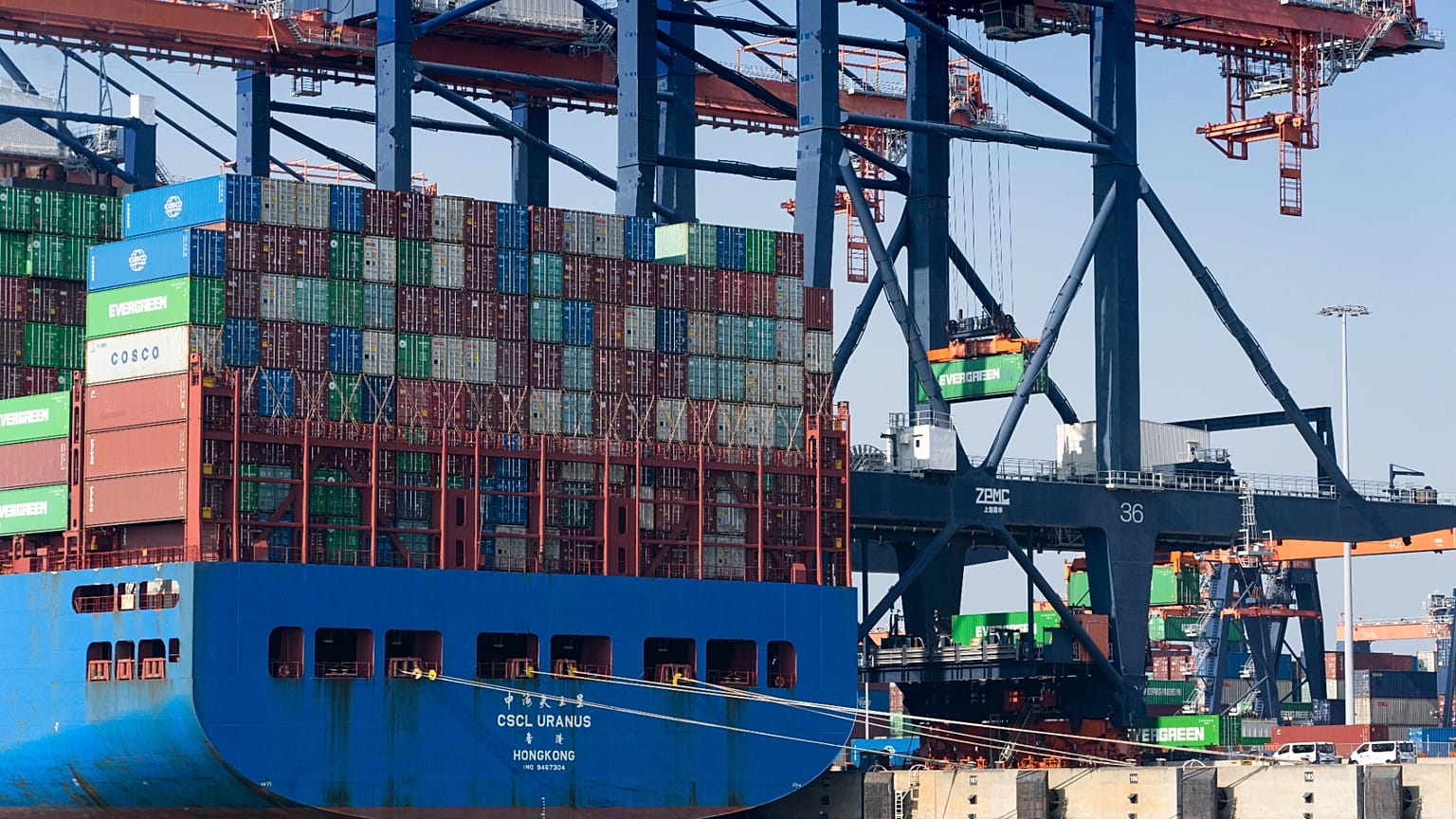Politics
EU Moves to Eliminate Trade Barriers with Mediterranean Countries

The European Union is taking significant steps towards enhancing trade relations with Mediterranean countries, as outlined in the upcoming Pact for the Mediterranean. This initiative seeks to eliminate trade barriers with selected North African and Middle Eastern states while encouraging alignment with EU single market rules.
According to a European Commission document reviewed by Euronews, several EU member states are advocating for this strategic deal, which aims to reinforce economic integration amid shifting global alliances. The proposal is part of a comprehensive summary prepared ahead of the pact’s presentation scheduled for mid-October 2024, with significant input from member states and regional stakeholders.
The European Commission, led by President Ursula von der Leyen, has emphasized the need to diversify trade relations away from traditional partners like Russia and China. The pact is expected to foster new bilateral agreements with key Mediterranean countries, including Algeria, Egypt, Israel, Jordan, Lebanon, Libya, Morocco, Palestine, Tunisia, and Syria.
Strengthening Regional Ties
The document highlights that consultations will also consider the perspectives of neighboring regions, particularly the Gulf countries and Turkey, acknowledging their strategic importance and influence. This collaborative approach aims to enhance regional stability and economic growth, particularly in light of commercial instabilities with traditional allies such as the United States.
Many EU member states are advocating for the modernization of existing agreements, pushing for the removal of trade barriers and alignment with EU regulations in sectors such as digital technologies, energy, environmental standards, and labor markets. The document notes, “Many [EU member states] propose modernising existing agreements and eliminating trade barriers.”
A Historical Context
This initiative is not the first attempt to facilitate trade integration in the Mediterranean region. The 1995 Barcelona Declaration aimed to establish a Euro-Mediterranean Free Trade Area (EMFTA), but this goal has yet to be realized. Currently, the EU maintains a preferential trade agreement with Mediterranean nations through the Pan-Euro-Mediterranean Preferential Rule of Origin (PEM Convention), which harmonizes trade regulations among EU nations, EFTA members, and various Mediterranean partners.
The recent document indicates a clear intention among EU member states to deepen trade connections with Mediterranean countries beyond the existing frameworks.
Trade Opportunities and Regulatory Alignment
The EU’s aspirations for trade alignment focus on several areas, including regulatory harmonization, market access, and support for local producers. The document emphasizes the need for “support for regulatory harmonisation to attract investment and build joint value chains in digital, transport, and clean energy.”
Proposals also encompass cross-border agro-industrial value chains, customs modernization, and green label export schemes, alongside the adoption of revised PEM rules of origin. Furthermore, simplifying trade procedures and supporting small and medium-sized enterprises (SMEs) are highlighted as vital components of this initiative.
Partner countries express a strong interest in aligning their customs systems and digital governance with EU standards. The document mentions proposals inspired by the General Data Protection Regulation (GDPR) and e-government tools to facilitate convergence.
Looking Forward
The Pact for the Mediterranean represents a strategic push by the EU to solidify its economic ties with neighboring countries and enhance regional integration. With the expected presentation in mid-October 2024 and a target completion date set for April 2025, this initiative has the potential to reshape trade dynamics in the Mediterranean region.
As EU member states continue to navigate complex global relationships, the outcomes of this pact could play a crucial role in fostering stability and prosperity in the Mediterranean area.
-

 Top Stories2 months ago
Top Stories2 months agoTributes Surge for 9-Year-Old Leon Briody After Cancer Battle
-

 Entertainment3 months ago
Entertainment3 months agoAimee Osbourne Joins Family for Emotional Tribute to Ozzy
-

 Politics3 months ago
Politics3 months agoDanny Healy-Rae Considers Complaint After Altercation with Garda
-

 Top Stories3 months ago
Top Stories3 months agoIreland Enjoys Summer Heat as Hurricane Erin Approaches Atlantic
-

 World4 months ago
World4 months agoHawaii Commemorates 80 Years Since Hiroshima Bombing with Ceremony
-

 Top Stories2 months ago
Top Stories2 months agoNewcastle West Woman Patricia Foley Found Safe After Urgent Search
-

 Top Stories4 months ago
Top Stories4 months agoFianna Fáil TDs Urgently Consider Maire Geoghegan-Quinn for Presidency
-

 World4 months ago
World4 months agoCouple Convicted of Murdering Two-Year-Old Grandson in Wales
-

 World4 months ago
World4 months agoGaza Aid Distribution Tragedy: 20 Killed Amid Ongoing Violence
-

 World4 months ago
World4 months agoAristocrat Constance Marten and Partner Convicted of Infant Murder
-

 Top Stories3 months ago
Top Stories3 months agoClimbing Errigal: A Must-Do Summer Adventure in Donegal
-

 Top Stories3 months ago
Top Stories3 months agoHike Donegal’s Errigal Mountain NOW for Unforgettable Summer Views









